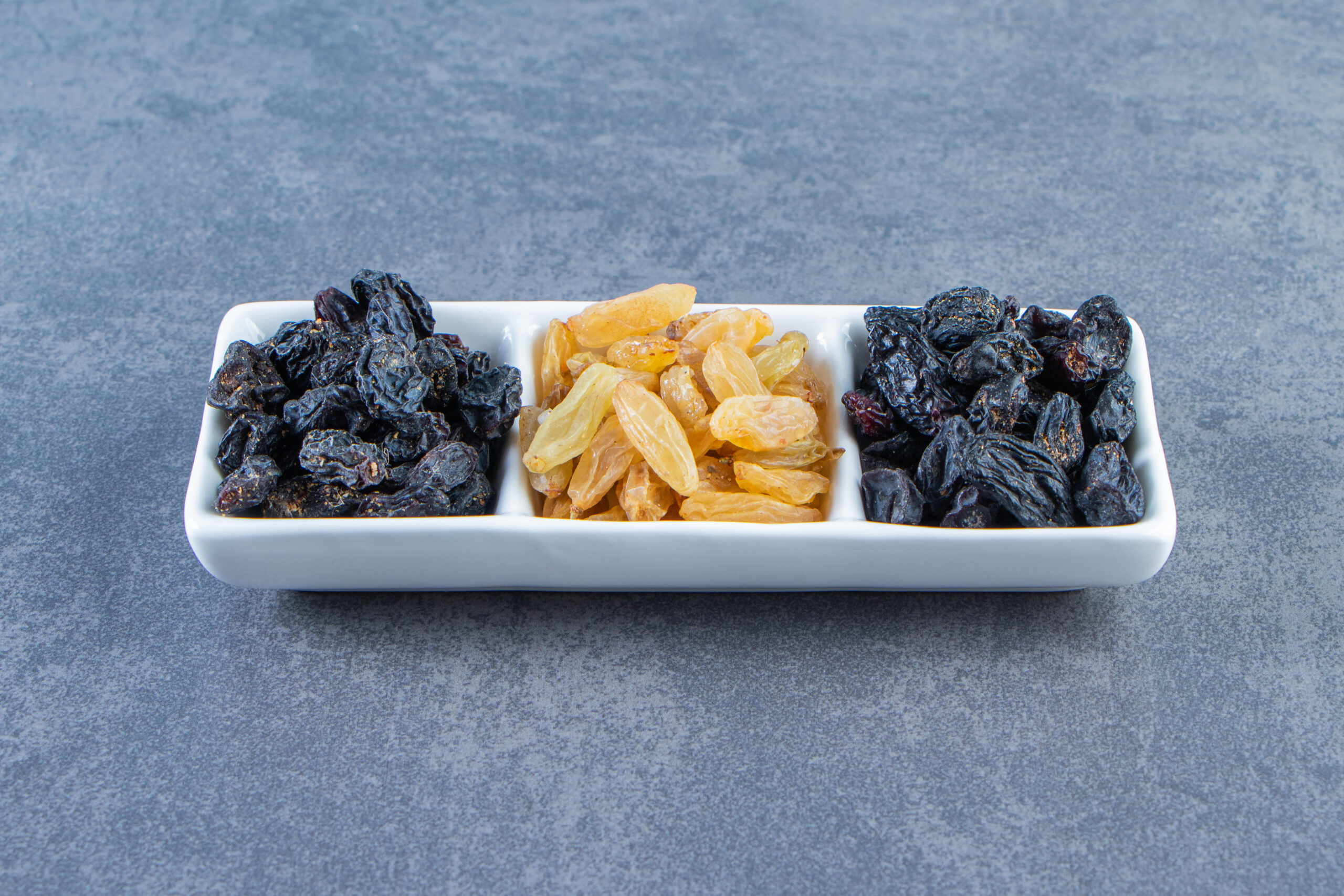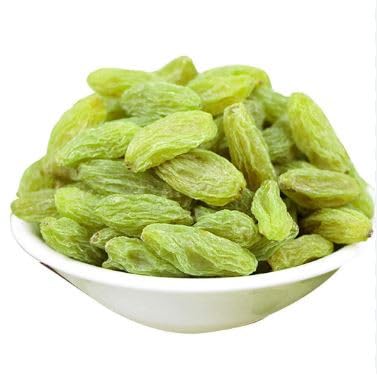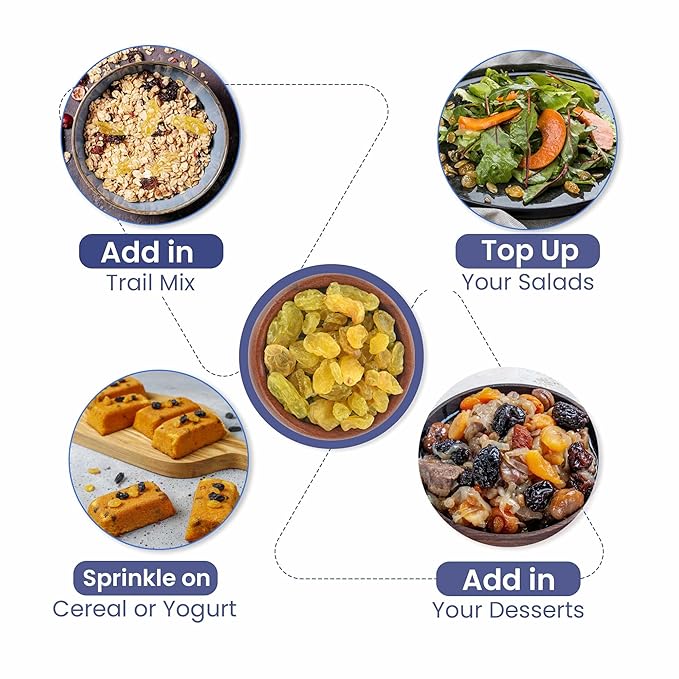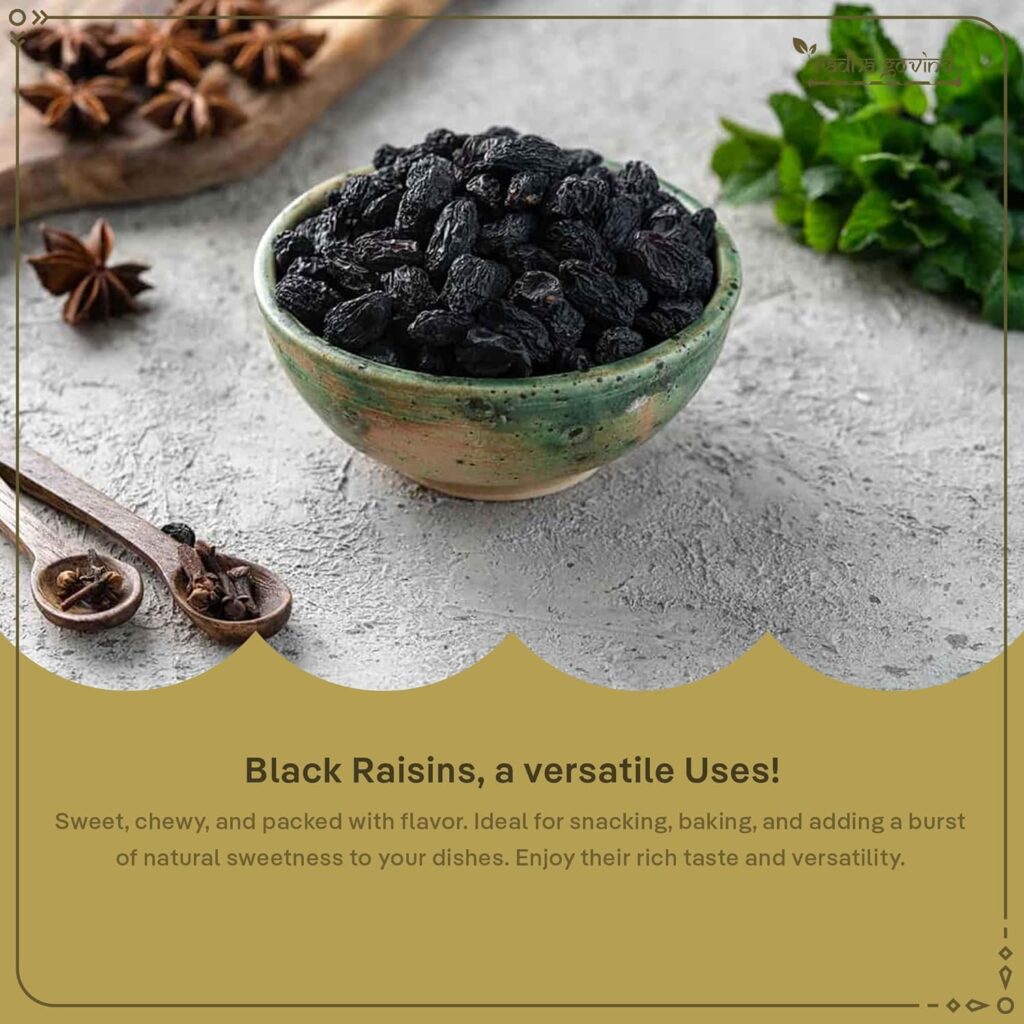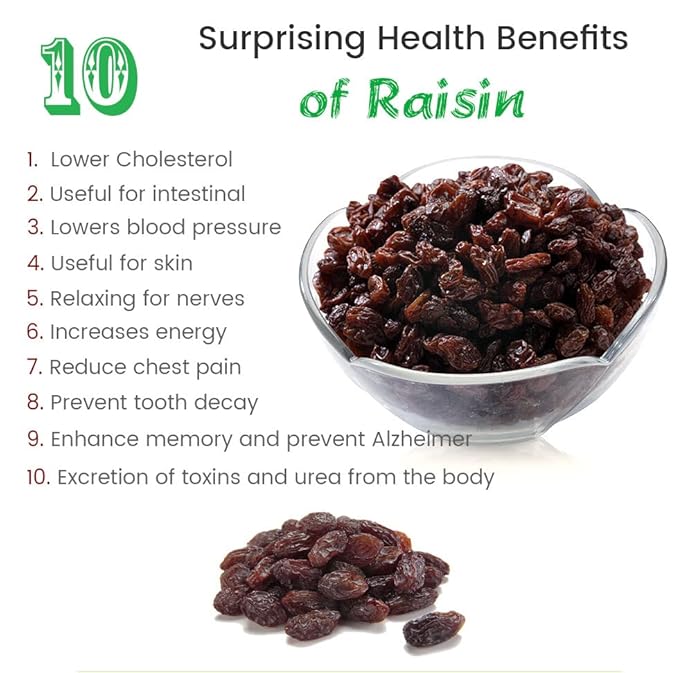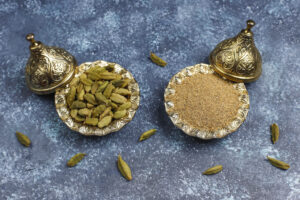Kishmish, the tiny dried grape, is loaded with surprising health benefits and nutrients. People love raisins not only for their natural sweetness but also for their health-boosting properties.
For an overview of kishmish basics, refer to our earlier blog post.
It delves into the origin, varieties, and ancient medicinal uses of raisins in Ayurveda and Unani traditions. Please refer to that article to understand kishmish from a traditional and scientific view.
Now, let’s explore fresh insights and new angles that go beyond the basics of kishmish.
Table of Contents
Kishmish for Mental Wellness: A Natural Mood Enhancer
It may look small, but it holds surprising mental health benefits. It contains magnesium, potassium, and antioxidants that help soothe nerves and reduce stress levels. The nutrients aid brain signaling, helping maintain emotional stability and a calm mind.
When you’re feeling low, it can act like a natural mood booster. The natural sugars offer quick energy without the crash, unlike processed snacks. Tryptophan in it supports serotonin production, improving mood and sleep quality.
A handful of kishmish daily helps you stay mentally alert and emotionally balanced. Add them to smoothies or eat soaked for better impact. Stay sharp—naturally—with the power of kishmish.
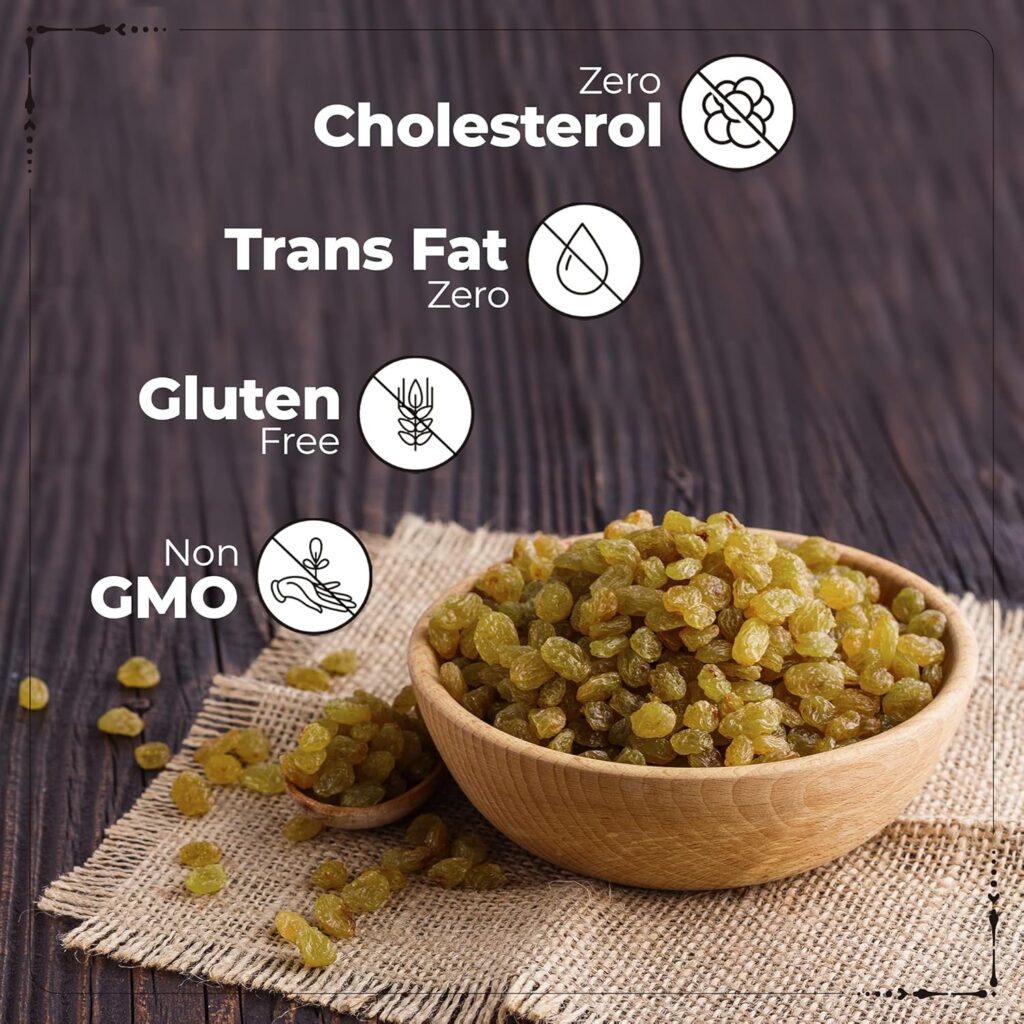
Kishmish for Oral Health and Dental Strength
It supports healthy gums and may prevent tooth decay naturally. It contains oleanolic acid which fights harmful oral bacteria in the mouth. This natural remedy protects against cavities and keeps your breath fresh for a longer time. When combined with daily brushing, it effectively reduces plaque formation and supports oral hygiene.
Eating a few raisins daily supports healthy teeth without added processed sugar.
Kishmish for Liver Health and Detoxification
Your liver plays an essential role in detoxifying and cleansing the body. It helps detox the liver by promoting enzyme activity and purification. Drinking soaked kishmish water in the morning enhances liver function significantly. This ancient remedy supports better digestion and reduces internal inflammation naturally.
Consistent use may improve bile production and prevent fatty liver disorders.
Kishmish and Hormonal Balance in Women
Rich in iron and antioxidants, raisins help maintain hormonal balance and support a regular menstrual cycle. Raisins ease menstrual cramps by relaxing muscles and providing essential minerals like magnesium and calcium. These nutrients support reproductive health by minimizing monthly hormonal fluctuations. They help manage menopause-related mood swings and unexpected heat surges in a gentle, natural way.
It’s a great snack for teens and adults to support hormonal well-being.
Kishmish for Eye Health and Vision Protection
It contains polyphenols that protect the eyes from age-related macular degeneration. It also includes vitamin A which supports night vision and reduces dry eyes. These antioxidants prevent oxidative stress that damages the retina over time. Eating it may reduce the risk of cataracts and blurred vision early.
It’s a powerful, natural remedy for long-term eye care and strength.
Can Kishmish Help with Constipation Relief?
Yes, it is loaded with fiber that improves bowel movement and relieves constipation. It acts as a mild laxative and improves gut function in a gentle way. Eating soaked kishmish on an empty stomach can ease morning constipation fast. It adds bulk to stool and helps regulate intestinal muscle contractions effectively.
This remedy works well for both adults and children with irregularity issues.
Also Read: Study Table for Kids
Kishmish – A Sweet Addition to Balanced Nutrition
Adding it to your food supports your health in multiple ways. It fits perfectly in cereals, salads, smoothies, desserts, and herbal teas. Due to its low glycemic load, it provides steady energy without sugar spikes. It also curbs sweet cravings naturally, helping you reduce processed sugar intake.
Just one tablespoon a day can curb sugar cravings and boost your nutritional intake.
Soaked Kishmish vs. Raw Kishmish – What’s Better?
Soaked kishmish is easier to digest and releases nutrients more efficiently. It contains better absorption of iron, calcium, and essential minerals for health. Soaking reduces natural sugars slightly, making it more suitable for sugar control. Raw kishmish is better when used in baking or energy-boosting snacks.
Both have value, but soaking is preferred for therapeutic and daily use.
How Many Kishmish Should You Eat Daily?
Consume 10 to 15 soaked medium-sized raisins daily for best results.
Excess may increase calorie intake, especially if you’re on a low-sugar plan.
Expecting mothers may eat them safely but should first check with their healthcare provider.
Children can enjoy 5 to 8 pieces daily as part of their school tiffin.
Monitor for allergies or unusual reactions, although it’s rare with natural kishmish.
Safety Tips: Who Should Be Cautious with Kishmish?
People with chronic kidney issues should limit it because of potassium content.
Those on blood thinners should consult doctors due to its vitamin K content.
If you have fructose malabsorption, limit it to avoid stomach discomfort.
Diabetics can eat it in moderation but must count carbs carefully.
Always buy clean, organic kishmish free from added sugar and preservatives.
Also Read: Cutlery Set
Quick Recipe: Herbal Energy Shot
Also Read: Dalchini Feast (Cinnamon)
Frequently Asked Questions
1. What happens if I eat too much kishmish?
Excess intake may cause bloating, gas, and even trigger blood sugar fluctuations.
2. Is it good for children?
Yes. It supports growth, brain development, and provides natural energy to active kids.
3. What’s the best time to eat kishmish?
Morning is ideal. Soaked kishmish enhances digestion and boosts your metabolism naturally.
4. How do I soak it properly?
Rinse well, soak overnight in warm water, and eat on an empty stomach.
5. Is kishmish better than refined sugar?
Yes. It contains natural sugars, fiber, and micronutrients unlike empty-calorie white sugar.
6. Can pregnant women eat it?
Yes, in moderate amounts. It supports iron levels and reduces fatigue during pregnancy.
7. What’s the shelf life?
When stored correctly, it stays fresh for six months or longer if refrigerated.
8. Can I use it in savory dishes?
Yes. Add it to biryanis, curries, or chutneys for a touch of sweetness.
Also Read: Food Secrets
Conclusion
It offers amazing benefits when eaten in the right quantity and manner.
We’ve already explored the foundations in our earlier blog—be sure to read that.
Now you know even more about how it supports deeper body functions.
Make it a daily part of your routine for energy, balance, and inner health.
Choose wisely, eat mindfully, and let this sweet superfood elevate your life.
Also Read: Walk More

